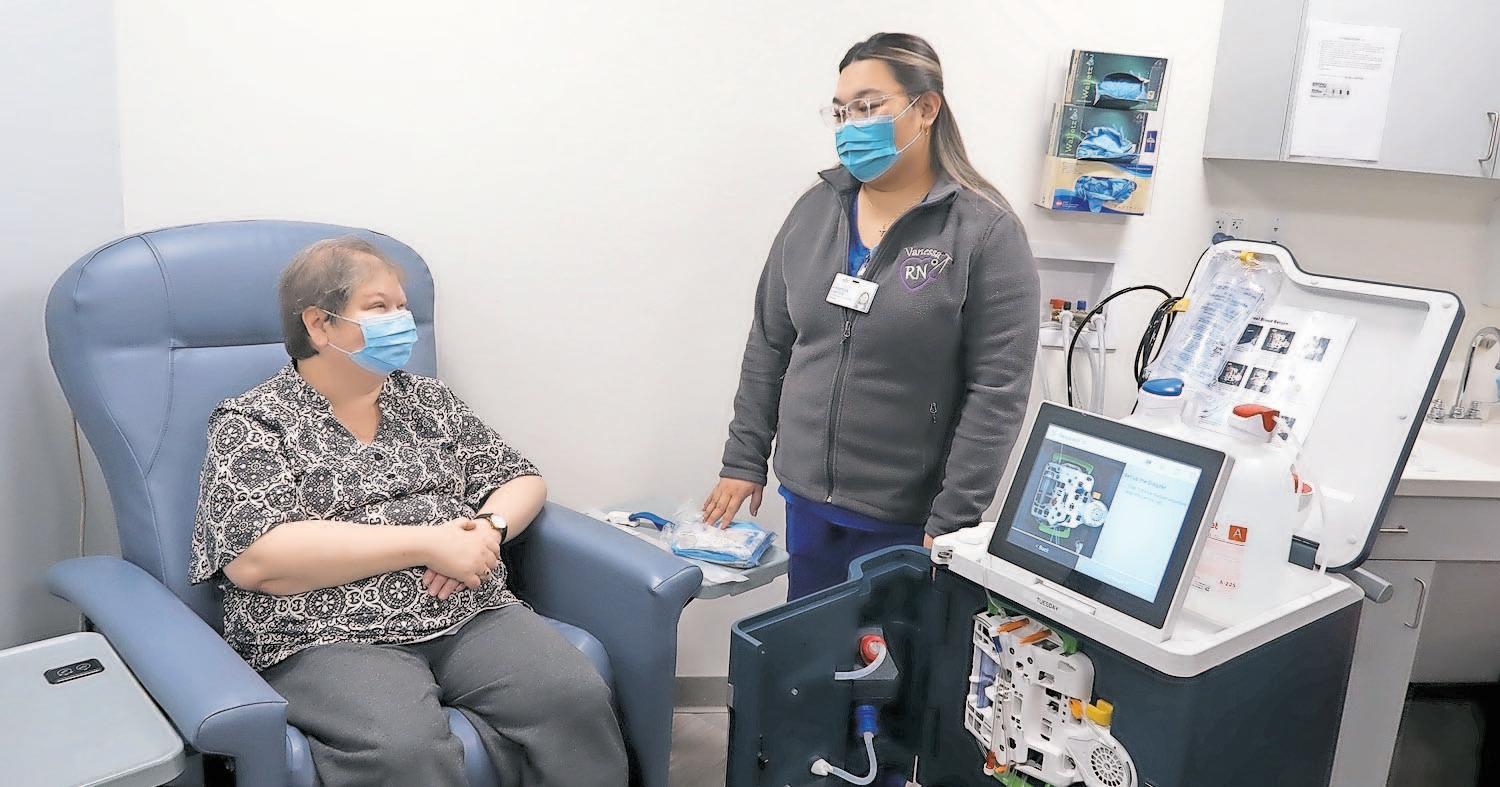
4 minute read
Your HealtH and Wellness — with a focus on Mental HealtH Your mind-body connection Going beyond the stigma
Why emotional health matters
Some people think that only people with mental illnesses have to pay attention to their mental health.
But the truth is that your emotions, thoughts and attitudes affect your energy, productivity and overall health. Good mental health strengthens your ability to cope with everyday hassles and more serious crises and challenges. Good mental health is essential to creating the life you want.
Now, during Mental Health Month, is a good time to take stock of your mental well-being and its connection to overall health. Just as you brush your teeth or get a flu shot, you can take steps to promote your mental health. A great way to start is by learning to deal with stress.
How stress hurts
Stress can eat away at your well-being, like acid eating away at your stomach. Actually, stress can contribute to stomach pains and lots of other problems, like headaches, insomnia, overeating, back pain, high blood pressure, heart disease and stroke, irritability, vulnerability to infection, and poorer brain functioning.
Stress also can lead to serious mental health problems, like depression and anxiety disorders. If you think you have such a problem, you can get help.
Of course you can’t magically zap all sources of stress. But you can learn to deal with them in a way that promotes the well-being you want and deserve. You can figure out ways to cope better with whatever comes your way. And decades of research suggest which steps are most likely to work.
Are you too stressed?
Your stress reaction can boost your performance and get you through a crisis. But too much stress can lead to serious problems.
If you’re concerned about your well-being, take a look at the symptoms of stress overload:
√ Fatigue
√ Headaches
√ Loss of concentration
√ Difficulty making decisions
√ Inability to control anger
√ Increased use of alcohol, caffeine, cigarettes or drugs
√ Increased or decreased eating
√ Feeling overwhelmed
√ Thinking often about what you need to do
The evidence
The concrete steps mental health professionals suggest are not based on guesses, fads or advice from grandma (though she probably got a lot right). They represent hundreds of research studies with thousands of participants, often conducted over decades and backed by major universities or government agencies.
This research shows that how good you feel is to a fairly large extent up to you. No matter how stressful your situation, you can take steps to promote your well-being.
We’re not talking about huge changes to your lifestyle, either. We’re talking about reasonable steps that if used consistently can increase your comfort and boost your ability to build a rewarding life.
Improve mental and emotional health by taking care of yourself
In order to maintain and strengthen your mental and emotional health, it’s important to pay attention to your own needs and feelings. Don’t let stress and negative emotions build up. Try to maintain a balance between your daily responsibilities and the things you enjoy. If you take care of yourself, you’ll be better prepared to deal with challenges if and when they arise.
Taking care of yourself includes pursuing activities that naturally release endorphins and contribute to feeling good. In addition to physical exercise, endorphins are also naturally released when we:
Do things that positively impact others. Being useful to others and being valued for what you do can help build self-esteem.
Practice self-discipline. Self-control naturally leads to a sense of hopefulness and can help you overcome despair, helplessness, and other negative thoughts.
Appeal to your senses. Stay calm and energized by appealing to the five senses: sight, sound, touch, smell, and taste. Listen to music that lifts your mood, place flowers where you will see and smell them, massage your hands and feet, or sip a warm drink.
Engage in meaningful, creative work. Do things that challenge your creativity and make you feel productive, whether or not you get paid for it things like gardening, drawing, writing, playing an instrument, or building something in your workshop.
Make time for contemplation and appreciation.
Think about the things you’re grateful for. Mediate, pray, enjoy the sunset, or simply take a moment to pay attention to what is good, positive, and beautiful as you go about your day.
Limit unhealthy mental habits like worrying. Try to avoid becoming absorbed by repetitive mental habits negative thoughts about yourself and the world that suck up time, drain your energy, and trigger feelings of anxiety, fear, and depression.
The truth about mental illness
One of the best ways you can help someone with mental illness is by understanding what it is and what it isn’t. After all, myths about mental illnesses contribute to stigma, which in turn prevents those who are living with one from seeking help.
The fact is, a mental illness is a disorder of the brain your body’s most important organ and 1 in 6 adults lives with a brain-related illness including depression, bipolar disorder, PTSD and schizophrenia. Like most diseases of the body, mental illness has many causes from genetics to other biological, environmental and social/cultural factors. And just as with most diseases, mental illnesses are no one’s fault. The unusual behaviors associated with some illnesses are symptoms of the disease —not the cause.
But most importantly, mental illnesses are treatable through medication and psychosocial therapies allowing those who live with them the opportunity to lead full and productive lives.
Fact vs. Fiction
Fiction: People living with a mental illness are often violent.
Fact: Actually, the vast majority of people living with mental health conditions are no more violent than anyone else. People with mental illness are much more likely to be the victims of crime.
Fiction: Mental illness is a sign of weakness.
Fact: A mental illness is not caused by personal weakness nor can it be cured by positive thinking or willpower proper treatment is needed.
Fiction: Only military personnel who have been in combat can be diagnosed with PTSD.
Fact: While PTSD is prevalent in men and women who have seen combat, experiencing or witnessing a traumatic event can trigger PTSD, including violent personal assaults such as rape or robbery, natural or humancaused disasters, or accidents.
Fiction: People with a mental illness will never get better.
Fact: For some people, a mental illness may be a lifelong condition, like diabetes. But as with diabetes, proper treatment enables many people with a mental illness to lead fulfilling and productive lives.
Fiction: Children aren’t diagnosed wtih mental illness.
Fact: Millions of children are affected by depression, anxiety and other mental illnesses. As a matter of fact, 1 in 10 children live with a diagnosable mental illness. Getting treatment is essential.
Fiction: “Mental illness can’t affect me!”
Fact: Mental illness can affect anyone. While some illnesses have a genetic risk, mental illness can affect people of all ages, races and income levels, whether or not there is a family history.









